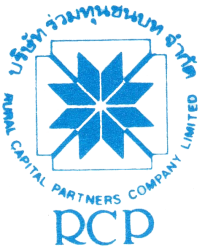Human security for all ; All for human security
(30 พค. 49) ร่วมอภิปราย (เป็นภาษาอังกฤษ) หัวข้อ “National, Regional and Global Partnership for Advancing Environment Security, in particular from natural disasters ” ซึ่งเป็นส่วนหนึ่งของ “Human Security Network (HSN) International Symposium on Building and Synergizing Partnership for Global Human Security and Development” จัดขึ้นในประเทศไทยโดย Human Security Network (HSN) ร่วมกับกระทรวงการต่างประเทศ มีผู้เข้าร่วมประชุมจากประเทศสมาชิกและประเทศสังเกตการณ์ของ HSN ประมาณ 150 คน จาก 14 ประเทศ
ได้อาศัยข้อบทย่อ (Notes) ดังต่อไปนี้ประกอบการอภิปราย
1. Environment insecurity has 2 major causes
(1) Natural causes
(2)Human causes (over–consumption, over-production, over –population, over-competition, unbalanced development policies, etc.)
2. The goals of human and national aspirations should be : Mutual peace, security and happiness of all people together, of all communities together, of all societies together, and of all nations together. This should be the “New Development Paradigm”.
One “Development Model” that should be considered is the “Sufficiency Economy” model as initiated and recommended to the Thai people by H.M. King Bhumibol of Thailand. His Majesty the King has just recently (on May 26, 2006) been presented with the “United Nations Development Programme’s Inaugural Human Development Lifetime Achievement Award” by UN Security-General Kofi Annan who also made a remark that “The King’s ‘visionary thinking’ helped shape global development dialogue. His Majesty’s ‘Sufficiency Economy’ philosophy – emphasizing moderation, responsible consumption and resilience to external shocks – is of great relevance to communities everywhere during these times of rapid globalization. The philosophy’s ‘middle path’ approach strongly reinforces the United nationsl’ own advocacy of people-centred and sustainable path toward human development”.
3.Effective management for mutual human security should include the following (5 P’s) :
(1) Planning (to achieve development goals , with stated targets , etc.)
(2) Prevention (of causes of insecurity, etc.)
(3) Preparedness (for natural as well as human-induced disasters, at community level and beyond, etc.)
(4) Partnership (among concerned people and parties, etc.)
(5) Practice (before event, during event, after event, etc.)
4.Two significant practices that should be regularly persued on a continuing basis, within each country as well as among countries :
(1)Networking (of people and organizations working on improving human security and human development)
(2)Knowledge management (among and for those networking people and organizations)
The last point can, and should, be encouraged, supported, and/or facilitated by the “Human Security Network”.
ไพบูลย์ วัฒนศิริธรรม
16 มิ.ย. 49
อ้างอิง
บันทึกนี้เขียนที่ GotoKnow โดย นาย ไพบูลย์ วัฒนศิริธรรม ใน ไพบูลย์ วัฒนศิริธรรม
เว็บไซต์ ต้นฉบับ https://www.gotoknow.org/posts/34362

